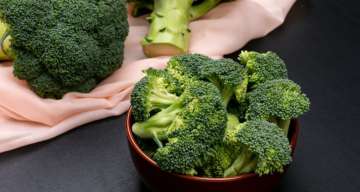A chemical derived from a compound found abundantly in broccoli and other cruciferous plants such as cabbage, kale and brussels sprouts may offer a potentially new and potent weapon against the viruses that cause Covid-19 and the common cold, researchers have found. Researchers at Johns Hopkins University's Children's Centre showed that sulforaphane - a plant-derived chemical - known as a phytochemical with anti-cancer effects, can inhibit the replication of SARS-CoV-2, virus that causes Covid, and another human coronavirus in cells and mice.
While the results, published in the Nature journal Communications Biology, are promising, the researchers caution the public against rushing to buy sulforaphane supplements available online and in stores, noting that studies of sulforaphane in humans are necessary before the chemical is proven effective, and emphasising the lack of regulation covering such supplements.
In the study, the team used purified, synthetic sulforaphane purchased from commercial chemical suppliers in their experiments. In one experiment, the research team first exposed cells to sulforaphane for one to two hours before infecting the cells with SARS-CoV-2 and the common cold coronavirus, HCoV-OC43.
They found that low micromolar concentrations of sulforaphane reduced the replication by 50 per cent of six strains of SARS-CoV-2, including the Delta and Omicron variants, as well as that of the HCoV-OC43 coronavirus.
Sulforaphane when combined with remdesivir - an antiviral medication used to shorten the recovery of hospitalised adults with Covid infections - also inhibited 50 per cent of the replication of both HCoV-OC43 and SARS-CoV-2.
"What we found is that sulforaphane is antiviral against HCoV-OC43 and SARS-CoV-2 coronaviruses while also helping control the immune response," said Alvaro Ordonez, Assistant Professor of paediatrics at the University's School of Medicine.
"This multifunctional activity makes it an interesting compound to use against these viral infections, as well as those caused by other human coronaviruses," Ordonez added.
The researchers then conducted studies in a mouse model of SARS-CoV-2 infection. They found that giving 30 milligrams of sulforaphane per kilogram of body weight to mice before infecting them with the virus significantly decreased the loss of body weight that's typically associated with virus infection (7.5 per cent decrease).
Further, the pre-treatment resulted in a statistically significant decrease in both the viral load, or amount of virus, in the lungs (17 per cent decrease) and upper respiratory tract (9 per cent decrease) as well as the amount of lung injury (29 per cent decrease) compared with infected mice that were not given sulforaphane.
The compound also decreased inflammation in the lungs, protecting the cells from a hyperactive immune response that seems to be one of the driving factors that has caused many people to die from Covid-19.
